Love your Wild Neighbors
By Terry Sullivan
Published in the Vashon Beachcomber July 13, 2022
Imagine yourself and a small group of trusted family or friends far out in the wilderness with little in the way of food, supplies, or tools.
To survive, you need to have or develop a knowledge of your environment both in its own terms and as it relates or contributes to your needs as a human animal. You will also have to practice the skills of working together and providing physical and emotional support.
This is the world that we evolved in, that other animals and plants live in every day, and that all too many of us humans, in our fascination with our own technologies, have become oblivious to and estranged from.
The cultivation of a human world as distinctly more important and in dominion over the “natural” world has created the state of fear, imbalance, and critical dysfunction in which we now find ourselves. At this late stage, we are now realizing that we humans are inseparable and interdependent partners with all of nature, from the smallest to the largest, all equally powerful.
But you don’t need to travel farther than your own backyard to re-create a sense of connection with your local ecology and to discover your important place in it.
The Vashon Wilderness Program (VWP) was created 15 years ago to ensure that generations of children and their families could experience this essential connection with the natural world — one that empowered individuals and cultivated healthy communities connected with their local place.
By becoming aware of the sentience, intelligence, wisdom, and code of conduct of the natural world, VWP helps people of all ages gain an intimacy, respect, and ultimately a love for our extended living family.
In the organization’s words: “Vashon Wilderness Program is devoted to health, well-being, and harmony — for individuals, communities, and the planet. We carefully tend relationships with ourselves, each other, and the earth, based on peace, compassion, reverence, and reciprocity. We honor nature as teacher and healer, and strive to help our students fall in love with the earth so that they may grow to protect our shared home.”
VWP began in 2007, with 24 students, and quickly expanded to serve youth ages 4 to 18. It offers all-outdoor weekly and monthly programs during the school year, week-long summer camps, special workshops and training for adults, and seasonal celebrations for the entire community.
This coming year, it will be serving up to 1,000 students from across the region. The organization operates in a shared leadership model and comprises 11 mentors, five staff, four elders, and a board of six.
The program’s curriculum includes:
Nature awareness and safety — balancing your nervous system and empowering yourself with knowledge and skills to navigate nature’s hazards.
Mammals and the art of tracking — knowing your mammal neighbors, their signs, habits, and strategies.
Plants, trees, and ecological principles — knowing your green neighbors, learning which ones are useful as food, medicine, construction materials, or tools, and practicing how to honorably and respectfully harvest only what you need.
Survival and wilderness living skills — becoming self-sufficient by working with your hands and natural materials to create what you need to survive and thrive.
Birding and bird language — increasing your listening skills and quieting your body and mind to hear and understand bird sounds and know what is happening in the forest and surrounding landscape.
Natural history and heritage — developing powerful body-based tools for observing nature, knowing your place in that world, and the historical context.
Having secured a state grant and additional support from the Vashon Island School District and the Vashon Schools Foundation, VWP will be starting a recess program to mentor all Chautauqua Elementary School students. The adjacent district forest trail should provide ample space to explore and learn.
To learn more, visit vashonwilderness.org.


